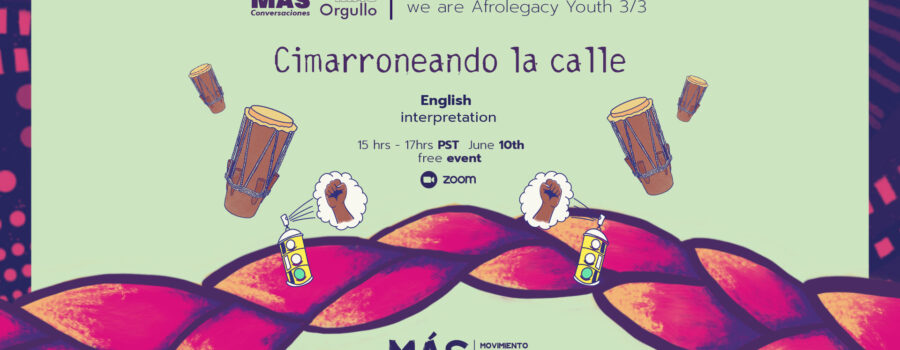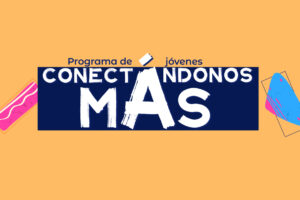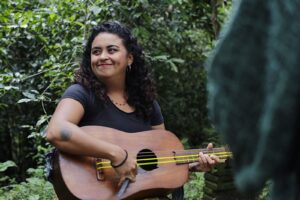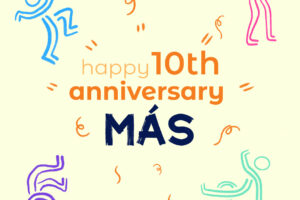Conversation 3/3
To take the street, to take the territory. Those are the basis of the actions of the young people who will accompany us in the 3rd conversation of the MÁS Conversaciones para MÁS Orgullo program, called “Cimarroneando la Calle”. Young people who walk, move through, and travel to build routes and a road map and safe spaces for Black brothers and sisters, from their countries of origin.
Alexis Mina, Afro-Ecuadorian, self-named “MinArt”, plastic artist, in love with the Afro-borned culture, reflected in the face of a woman, brings us his technique, sepia colors, pastel chalks and charcoal, as sublime ways of breaking into the street.
The Afro-Colombian Youth Leader and alternative communicator, Lali Fernando Riascos, uses the virtual street provided by social media, like Instagram and Tik Tok, to make visible the customs and cultural traditions of Afro territories that are on the “periphery” and for many people are unknown.
How did these leaders become Afro-legacy youth? What do they denounce, what do they dismantle, what do they reaffirm by taking to the streets as maroons? They know and feel that for Black people the street/territory is the place of gathering, and at the same time the place of struggle and reconstruction. The street/territory becomes a continuity of the house and the family; and at the same time it is the basis for building family and community. This is the philosophy of Alexis and Lali, an Afro-borned philosophy.
Connect with us to learn about the creative, artistic, and ethnic-racial strategies that Alexis and Lali steward to transcend the idea that the street/territory is just a space of transit, but rather, join us in recognizing that the street/territory is the space to build community and combat the different types of violence of race, class, gender, that we tend to receive as Afro-descendant people.
We hope to see you on Saturday, June 10, in Conversation number 3 “Cimarroneando la Calle,” from the Series number 7: We know what we want We are youth of Afrolegacy,Movimiento Afrolatino Seattle (MÁS), to feel closely how the individualist project of modernity and coloniality is constantly challenged by young people who are clear about the validity of the street/territory as the basis of our COLLECTIVE BEING, our BEING MAROON.
















